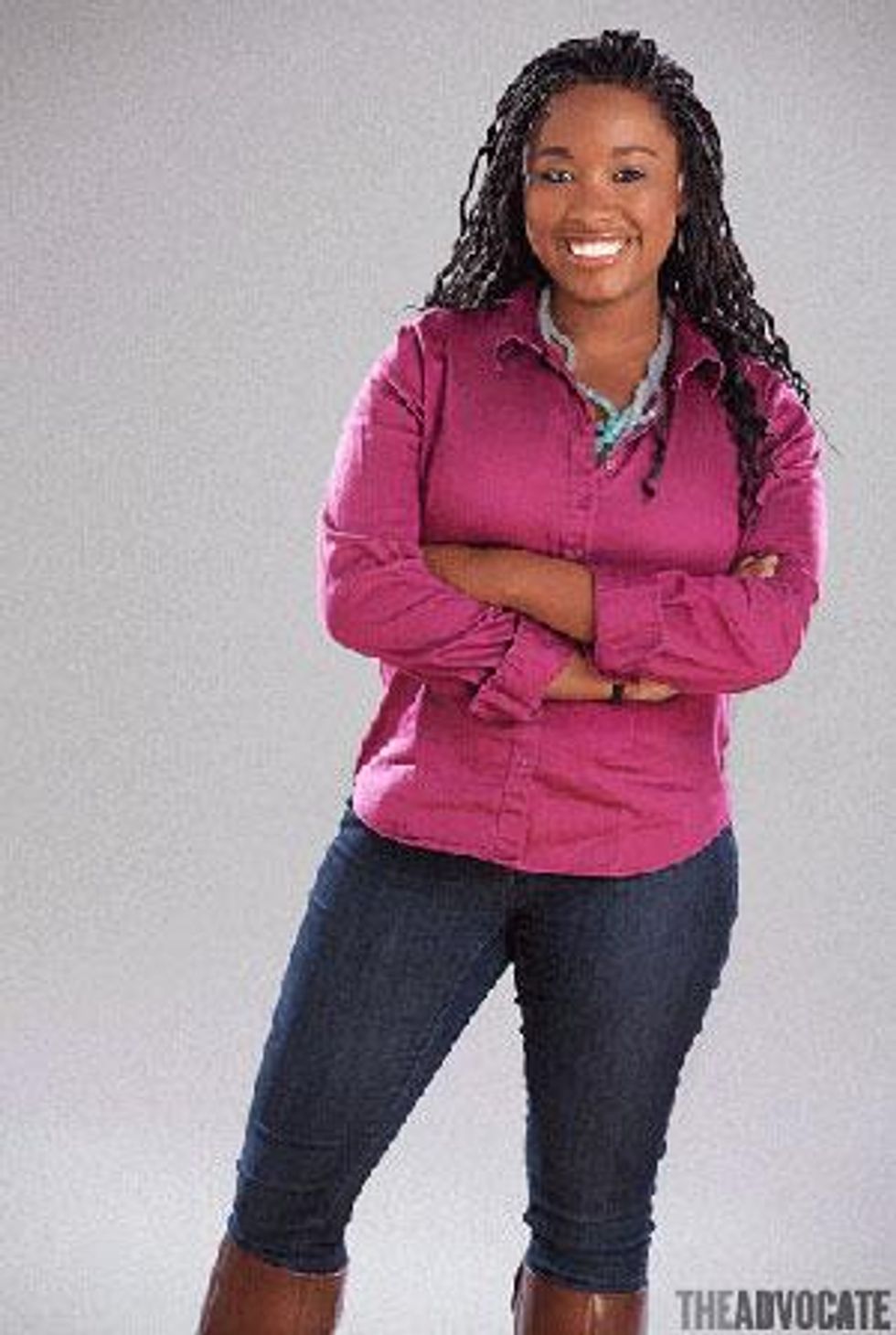
It's a simple question, really, but incredibly frustrating to some of the people who receive it.
This nerdy black girl from Queens, N.Y., and a funny white guy from central Oregon found each other doing improv at a state college in the middle of nowhere. We've been a pair for more than a decade, and in that time we've been through an immense amount together: studying, working, and performing together as undergrads, coming out (mine), identity crises (mine), existential crises (both of us), moving across the country, financial struggle, awful jobs, good jobs, and an ever-present battle to lose weight. But we're solid. I won't say "happily ever after" but "pretty damn great."
If you were to see us individually, would you assume we're married? No, probably not. But when we're together, I would like to think there's no doubt, either because of the closeness with which we stand together or because our banter has been impeccably honed or the fact that we're wearing matching wedding rings. And yet we are constantly asked:
"Are you paying together or separately?"
"Two double beds or one king-size bed?"
"Would you like to be seated on the plane together?"
One of our neighbors even thought we were roommates for a year -- I introduced Adam as my husband to her!
Yeah. It's stupid. But after 10 years, I'm over it.
A couple of weeks ago, my husband had it too. We went to our friendly neighborhood fancy-schmancy organic grocery store, where we shop almost daily because we're foolish with our money. We put our food down at the counter -- not a conveyor belt sort of counter, but one that's like a cashier's station. As in, two random separate people would not put their food down at the same place because that would be confusing and weird. Our compostable cardboard containers were side by side, and we exchanged some sort of mundane side-conversation like "Did you pay the rent yet?" or "Let's call your mom and figure out when they're coming down for Christmas."
The cashier scanned my .75 pounds of beets and kale, and then asked, "Paying together or separately?"
My normally even-keeled husband replied, "Of course we're paying together, man, we're fucking married!" And then he threw up his hands and stormed out of the store.
Meanwhile, I still had to punch in my personal identification number, verify that the price was correct, and make sure we didn't need a bag. I kept my head down. I couldn't look at the cashier. I knew he felt bad, because of the racial implications of what just went down. Judging by his looks, the cashier's parents probably look like us. I didn't know whether to feel embarrassed (I was) or turned on (I was) or like giving my spouse a high-five (I did).
It's not like we're an anomaly. There are more married or cohabiting interracial couples than ever before, according to the Pew Research Center, and a cursory glance at the people we know. Maybe it's the fact that I live in Los Angeles or that a good chunk of my friends are LGBT, but it feels like that statistic mirrors similar statistics around gay and lesbian couples.
That doesn't stop the stares for holding hands or questions at restaurants like "Is this credit card for the both of you?" That being said, I'm glad that we're not being spit at while we walk down the street together, and that we can even just legally be married. But it's sad that even in liberal Santa Monica, Calif., an interracial couple still gets questions.
But this is not just limited to couples like mine. Gay couples and lesbian couples, even if they're generally accepted by the community around them, still have to face the annoying points of curiosity.
"Which one of you is the real dad?"
"But are you actually married or just together?"
"Who goes on top?"
For the most part, I think most people are getting (slightly) better at accepting that coupledom comes in all sorts of shapes and sizes. But we're in this weird middle phase, where people feel comfortable being curious, even though their questions otherize or ostracize the people they're curious about.
You're still pointing out that we're different, even if you claim to accept us all. We're beyond being "different." We're just us.
Perhaps people think they're being polite by not assuming that we're together. I contest that such an assumption feels even more rude. It's like assuming that everyone is straight unless proven otherwise or that all black people go to one type of church and all white people watch Mad Men.
I don't think I have a physical "type" of person that I'm attracted to (though, I will admit a partiality to schnozzes and dark hair). But whether they're male or female, I assume anyone I would be involved with, if I weren't married to my husband, would not "look" like someone I'd be involved in. If I were single, who the hell knows the dates I would bring home for Christmas -- a hipster Latino comedian dude or a glamourous black girl, a Japanese programmer or some genderqueer person with an equally nebulous racial identity. Nonetheless, I would want to be respected like we're a couple. And all couples should be.
Acceptance does matter, but it comes in waves. So I'm making it my personal mission to hold his hand a little harder, and to keep paying for our dinners on the joint debit card.
MICHELLE GARCIA is The Advocate's managing editor. One day, she's going to have pretty rad-looking biracial babies with this guy. Follow her @MzMichGarcia.













Charlie Kirk DID say stoning gay people was the 'perfect law' — and these other heinous quotes
These are some of his worst comments about LGBTQ+ people made by Charlie Kirk.